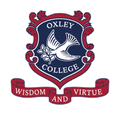From the Principal

Dear Friends,
Congratulations to everyone involved in the Year 5 and 6 Camp to Sovereign Hill. I trust it was a great time and hope you have all thawed out following the experience of heat-wave conditions in Ballarat. Welcome to the winter months. Meanwhile, I also thank our community for their patience in this period of illness among staff. We have had a small number of Covid infections but some substantial numbers of flu and other bugs doing the rounds of the College staff. This has made regular class schedules and activities difficult on some days.
Following on from my last editorial, in the previous millennium when I studied the philosophy of education for various teaching qualifications, our classes were exposed to the works of authors like Jean-Jaques Rousseau, Karl Marx, Jean-Paul Satre, Michel Foucault, Jaques Derrida and Noam Chomsky, among others. I do not quote them to sound as though I am well-read, but simply to say that over the past 200 years the influence of such intellectuals has grown steadily and has shaped the secular agenda of the modern era. As the historian Paul Johnson says of these High-Priests of knowledge, they were not servants or interpreters of the gods, but they were their substitutes. ‘Their hero was Prometheus, who stole the celestial fire and brought it to earth’, to enlighten us. Johnson says these intellectuals have the egotism to believe that their thoughts show us the way to conduct human affairs. Their approach is moralistic, but not in a religious sense. They cannot admit to a higher authority than their own judgement, and they have a deep-rooted and powerful arrogance about their acumen.
Back then, I wish I had known what I know now. I wish I had known about the questionable state of the minds of some, their propensity for deliberate falsehood in their research, the lack of the personal virtuosity they preached, and the ubiquitous role of the political state in their mind.
The intellectual assault on classical and Christian thought is now astonishing as it is pervasive, globally. There is hardly a simple correspondence to the loss of truth in our institutions with these early writers. But they set the scene and wrote the lies that others have used to get rid of Christian thought in education in the West. In the early 1900s, this became an intentional undertaking with the wholesale rewriting of curriculum, the abandonment of prayer and bible reading in schools, and denying the need for any transcendent entity to explain the purpose of mankind. Obviously, it was a movement reliant on the faith positions of atheism that continue to this very day, the latest mutation being critical theory. Its activist scholarship has made everything about race, gender, and identity.
In a book called Cynical Theories, Pluckrose and Lindsay document the evolution of the dogma behind critical theory, from its origins in French postmodernism to its refinement within activist academic fields. Today, this dogma is recognisable through its effects like cancel culture and social media dogpiles, as by its tenets that are embraced as self-evident by mainstream media. That is, knowledge is a social construct, science and reason are tools of oppression, all human interactions are a form of oppressive power play and language (outside of the elite) is dangerous. These anti-Enlightenment beliefs are not just anti-religious but have become a threat to liberal democracy itself.
The origins of a Christian explanation to all this is found in that ancient lie of the Adversary, that in our denial of, and disobedience to the Creator, we will become as gods. In the last 200 years, hundreds of millions of people have died and millions tortured in the political cause of this lie.
Warm regards,
Dr Douglas Peck
